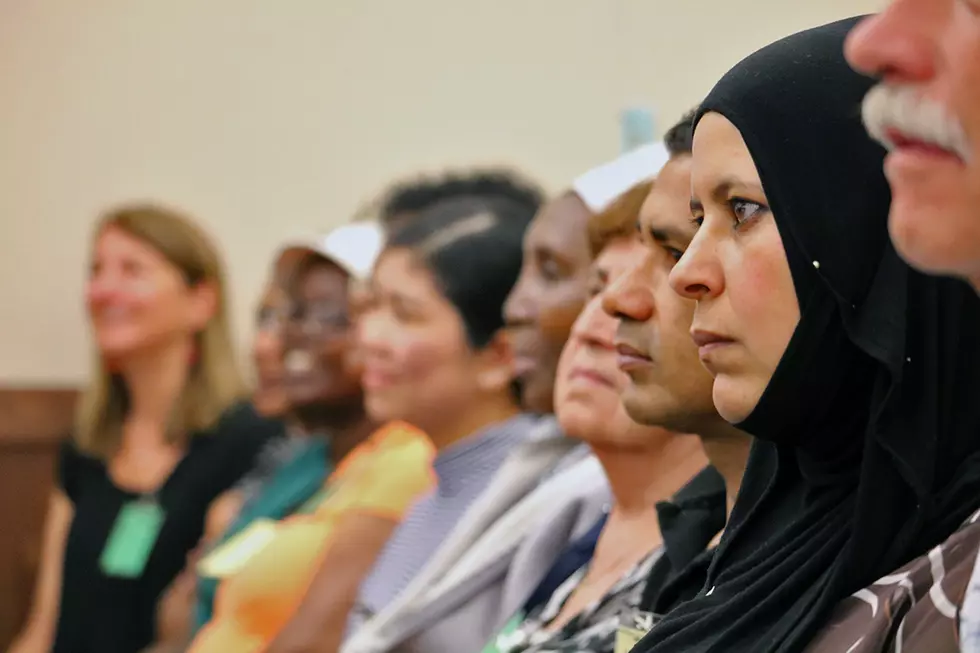
Missoula County adopts JEDI resolution, “sets the bar a good bit higher” on equity
A resolution stating an intention to create a just, equitable, diverse and inclusive community is now solidified as the blueprint moving forward for both the city and county of Missoula, the latter of which adopted the philosophy this week.
Saying the so-called JEDI resolution sets the bar “a good bit higher,” Missoula County commissioners approved the document and all it entails.
“It commits us to try,” said Commissioner Josh Slotnick. “We have not in the past had any intentional efforts toward justice, equity, diversity and inclusion. We're going to commit ourselves to work with our partners. We're going to commit ourselves to create a roadmap toward equity.”
The resolution, considered necessary by some and racist by others, looks to establish new ways to review and revise local policies, procedures and initiatives that better reflect the JEDI principles.
The resolution attempts to strike at a number of concerns that cover perceived racial or group inequity, economic inequity, equal opportunity and other issues. It could also encompass government decisions on housing, poverty and homelessness, among other social concerns.
“This puts our commitment down in writing by way of resolution, helping us articulate how we'd like to proceed and develop blueprints to more sustainable solutions in this process,” said Jamar Galbreath, the county's equity coordinator. “It allows us the ability to develop really intentional strategies to move our work forward.”
Among other things, the resolution notes the disparities that afflict Missoula's minority populations at a greater rate than their predominantly white peers. The city's black, indigenous and other people of color comprise 8% of the local population, but disproportionately earn an income below that of others.
That same population also accounts for 30% of the jail population, and it's afflicted by negative health outcomes at a greater rate. The resolution calls upon Missoula County to “ensure equal opportunities for all people, especially those diverse populations who are often marginalized.”
The resolution adopted by the county on Thursday is the fourth edit in what's been a months-long process.
“We're going to attempt to make sure our staff, boards, councils and commissions reflect the diversity in Missoula County now,” said Slotnick. “We're going to set ourselves up for some benchmarks and assessment tools so we know where we are and how we're doing.”
The City Council last month adopted the third iteration of the resolution on a 9-2 vote and allocated nearly $230,000 from the American Rescue Plan to promote the JEDI principles in its FY22 budget.
Supporters of the resolution on the City Council suggested opponents were against the document and its principles due to fear. The county hasn't used such language to label opponents, who believe the document is inherently racist.
“They end up being policies based around race, which makes them inherently racist,” Jason McDonald told commissioners. “I'm not going to change any minds here. I'm just saying what I believe.”
Slotnick suggested the work is just beginning, and all concerns will be taken into account as policy decisions play out based upon the JEDI principles.
“This is the beginning, not the end when people can comment,” he said.
While the resolution sets a path forward, Commissioner Dave Strohmaier said the county has taken steps in the past toward the JEDI principles, even if those principles hadn't yet been articulated.
Among other things, the county has hired a diversity coordinator, and it renamed its meeting chambers in 2018 after Sophie Moise, a Salish cultural leader who lived from 1864 to 1960. The county also has added the Confederated Salish and Kootenai tribal flag to the meeting room in the courthouse.
“That is here intentionally as recognition that this is the traditional homelands, the aboriginal territories of the Salish and Kalispell people,” said Strohmaier. “History did not begin at the inception or the incorporation of the City of Missoula. There is deep history in this place and connections to the people who have lived here for millennia and are still here and call this place home. This (resolution) sets the bar a good bit higher in terms of where we need to go in the future.”
https://missoulacurrent.com/government/2021/08/missoula-equity-resolution/
